



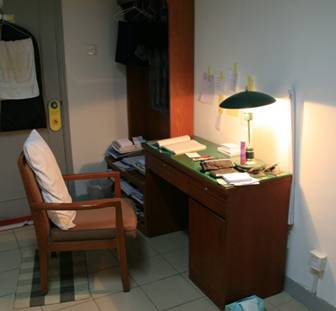

|
ďI learned Spanish, French, Italian, Swahili and Timbuctooian, so Iím up for itÖĒ The difference between Chinese and other languages is that there is no alphabet. The words are, if you like, a series of small pictures.† |

|
ďAll sounds a bit un-necessary to me, Iím just going to learn speaking and forget the writingÖĒ Given the agro of learning Chinese characters plenty of people try this.† |
|
ďIím going to kill two birds with one stone and relocate my job to the Beijing officeĒ Working and studying at the same time is something people do a lot, in all areas of life, I guess.† |
|
ďIím going to get a job teaching English through the British Council and learn in my spare timeÖĒ If you havenít got any money and you want to teach English, then the British Council is a very stable and secure way to get into the country, with all the hassle of visas and bargaining with Chinese† employers that goes with it.† Youíll be teaching kids in a school, and not adults, but you wonít be shafted and left in a gutter one day, which is quite possible if you organise the whole thing yourself.† |
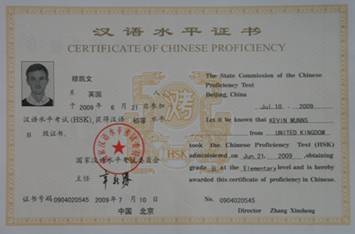
|
ďIím really motivated.† Iím going to cut out some of the classes and get to advanced level in 6 months...Ē Good luck.† Sadly, only the Koreans seem to be able to learn the Chinese characters quickly, us poor Westerners are stuck with sitting it out through all of the levels.† |

|
This has several consequences.† When you talk to someone in the street, and they teach you a new word for something, you have no idea how to write it down.† Similarly, when you see a sign in the road, you have no idea how to read it, even if you have heard all the words before.† And looking it up in a normal dictionary takes forever.† (Almost all students have touch-screen entry electronic dictionaries, usually a smartphone.) |
|
The result is that Chinese is very difficult at the beginning, but conversely becomes easier towards the end.† This seems the opposite for most alphabet-based languages.† |
|
Another result is that writing and reading must be practiced every day.† This is often very beneficial for other languages, but having a few days off from Chinese is usually a big disaster.† |
|
The end result is, I have found, that people who have learned a lot of languages before sometimes struggle more than those who are learning Chinese for a more specific reason.† Not sure why, but completely different expectations might be one.† Youíll be learning Chinese a good couple of years, for example, before you can look up a bus route and get on and off without any help from a Chinese person whatsoever.† Thatís certainly not true with European languages.† |
|
-† I donít think this is a very good idea for learning Chinese, however.† Chinese simply requires so much attention and memory, and it must be impossible to have enough energy left at the end of the day to give your best hours to sorting out the minute differences between characters that is needed.†† Not only that, but daily practice is even more crucial than it is in other languages.† In my opinion, and anyone with a half-decent job will have short periods where they are just snowed under with work.† I think working and studying Chinese is best left until you have already reached the level you want, and you just want to keep it going at the same level in your spare time.† |
|
-† Lastly, Chinese people are geniuses at forcing you to speak English even when you try to insist on practicing Chinese.† Itís a very long time before your Chinese is so good that they are too embarrassed to speak to you in English and can only make their point easily in Chinese.† If you were already at that stage, you probably wouldnít have read this page all the way down to here.†† Given that, itís best to give up the idea of Ďlearning on the jobí.† |
|
-† The disadvantage, from the point of view of learning Chinese, is that you are a very expensive person to have around in a Chinese school.† You can expect to be working very very hard indeed.† If you have time off at all, then you can also expect some cleverly organised office arrangements which mean that other teachers can easily sit and chat to you in your Ďspare timeí.† No, they wonít be teaching you Chinese for free.† Obviously, learning Chinese in this environment is a challenge at best, at worst impossible.† |
|
-† Given that the salary for being an English teacher is very comfortable by local standards, the obvious answer is to teach part-time.† The difficulty is the visa.† A school will only go to the trouble, and cost, of getting you a visa if you are full time.† |
|
This all makes enrolling at a university, on a student visa, by far the most convenient way in and out of the whole situation.† The disadvantage, of course, is the school fee.† The advantage is that afterwards all your education is included, you get a residence permit which means you can come and go as you please, and, depending on the course, enough spare time to get some teaching in.† |
|
You may have noticed one glitch - that teaching in this situation is illegal.†† Now, whether or not that is an advantage or a disadvantage is merely a matter of opinionÖ†† |
|
While weíre on the subjectÖ† I know this is not the topic of the page, but it seems like a good place to mention some things about teaching English.† |
|
On the minus side teaching English on a tourist or student visa carries the obvious risk of deportation.† However, given that almost all of the teachers I know are teaching illegally, and they are in short supply here in Chengdu, I hardly think itís in the interest of Chinese people for stories to pop up of foreign teachers without the correct papers being led onto airplanes in handcuffs.† My view is that if you keep it to yourself and donít go blabbing it around then no-one says anything.† Youíll soon be teaching the kids of Government officials anyway, and before you know it the back door is wide open.† |
|
There is one big advantage of working illegally.† You can chop and change jobs as much as you like.† This turns the table of market forces back on the owners of teaching schools, and they have to look after you, at least a little bit, or you will bugger off.† This is totally untrue if they provide your working visa.† If you want to change jobs you have to find a new company, then go home, as I understand it, to apply for a new visa with the new company in their embassy in your own country.† That stacks the market forces well and truly in their favour, and how on earth that can be described as a stable job is beyond me.† |
|
There are a few other important points about teaching English.† Firstly, companies like to see a CELTA certificate.† However, itís unlikely that you will use any of the skills that you learned on it, at least not if you are teaching English on the side to companies that organise Ďoral coursesí.† The last thing they want is someone dissecting the past conditional imperfect for an hour to paying customers.† I did a really good CELTA course, at International House in London, to the cost of over a thousand pounds.† So far, the classes in which I used the stuff from the CELTA amount to 100 pounds in earnings.† Not much of a return when you think about it.† If I did it again then I would do a cheap internet CELTA, and whether the certificate looks a bit fake or not, who cares.† Once youíve been teaching for a few months, experience counts for far more than training anyway, and becomes irrelevant.† |
|
Lastly, Chinese people can be surprisingly prejudiced, which a lot of the time is just pure racism.† To teach English you really need to come from one of the six native-speaking countries.† This is sad, because Chinese peopleís English is so bad, that frankly most people could help them out.† This aspect is just snobbery, to be honest, but it does make it difficult for Germans and Dutch people to get a job, which really shouldnít be the case.† |
|
One difficult point is people from the US, UK, etc whose parents come from China.† We know full well that they are American, etc, through and through, but Chinese talk about how they have ĎChinese bloodí, and for some bizarre reason this means that their English canít be very standard.† Very sad, and, like I say, based almost entirely on racism, of one variety or other.† If there is one piece of good news, itís that black people who come from the US or the UK donít seem to have any problem finding work.† Thank-goodness for small mercies.† |
|
-† Firstly, there is a big difference between Mandarin Chinese and most peopleís local language, (dialect).† Dialects are pretty strong here in Sichuan.† Our Vocabulary teacher summed it up by saying that if he gets in his car and drives 2 hours out of Chengdu, when he gets out he already canít understand what ordinary local people are talking about.† I can certainly confirm the difficulty of talking to my girlfriendís family, from a city 3 hours away, famous for having unitelligable local language.† Why is this important?† Foreigners who learn ĎChineseí by Ďmaking friends with and chatting to local peopleí inevitably end up learning something which sounds more like a farmer talking rather than a businessman.† Fine while you are buying fruit in your local market, but wonít cut it on a business trip to the next big city.† Some people think learning in Beijing might be better, but think again.† People outside Beijing canít stand people from the capital coming to their town and trying to ram Beijing dialect down their throat.† |
|
-† Another aspect is that people from different areas really do use the Chinese characters for communicating, even orally sometimes.† Iíve lost count of the number of times a shop owner has tried to write a character in the condensation on a freezer to explain his point, and when Chinese people talk to each other they often compare similar words with one character the same, to make sure the meaning is clear to the listener.† |
|
-† Lastly, being unable to read Chinese is not like a Spanish tourist not being able to read English in London, but actually like a British person being unable to read or write at all in London.† This has a big impact.† To research a route and get the bus without being able to read or write is almost completely impossible, unless you have someone Chinese with you.† Needless to say, most foreigners you see in China are either walking for hours everywhere, or are being led round by a guide/friend/girlfriend/hanger-on etc.†† ďLike being led round by a nurseĒ as someone abusively said to my girlfriend once, when we were holding hands.† Learning some local dialect wonít change this too much.† |
|
OK, Iím going to be completely honest again, and yes, some people will like it, but some people wonít.† You have been warned again: |
|
Americans are really confident students, and are generally really good at learning oral Chinese, much much better than most of the East Asians.† |
|
However, when they first arrive in China, having studied a little bit in the USA, they have an astounding level of over-confidence, and an unshakable belief that they are more able than all the other students.† The result is, on several occasions now, Iíve met Americans who have put themselves in completely inappropriate classes, and sadly have performed shockingly in the end-of term tests, and stand out in the class as being totally incapable.† The truth is, they are just as good as all the others, and they are motivated, but their unbelievable confidence just means they are in the wrong group.† |
|
Chinese reading and writing takes time, and there arenít any shortcuts, unfortunately.† |
|
When you ask the Koreans, by the way, about why they are so good at writing, they deny having studied any before, say that Koreans have no advantage over others in learning Chinese, and leave the only conclusion that they must be some kind of advanced genius super-race, or genetically predisposed to learning Chinese from birth.†† Liars.†† Almost all Koreans learn some Chinese characters at school, and their entire language is based on it, even if they do have a phonetic system for writing it down now.†† Theyíll beat you in the HSK exam, but donít worry, even with a white face youíll be the one talking the arse off the fruit seller to get bananas cheaper than them.† |
|
My very first classes were at SOAS, in London, on a Saturday morning.† This was a very mixed bag to say the least.†† The good aspects were that great feeling that I was going back to University again, meet new people, get a library card, etc etc.†† Another was the big choice of classes, which if you signed up early meant a lot of flexibility.†† The bad side was that all of the students gave up.† Of 24 at the beginning (2 classes of 12), only two people were left to start the third unit.† And that was the end of that.† |
|
My stroke of luck at SOAS was being put in the class of Weisan Hu, the wife of David Su, who runs the Meridian Chinese Studies Centre.† Although a small school, David Su has really cracked how to teach Chinese sentence structure to Westerners, in a Chinese way, and for three years after leaving his course, I still relied on the core grammar that he taught using his TDR approach.† For anyone living in the London area, this is a must.† |
|
After travelling for a while, half in China, I went to BLCU in Beijing.† I had a great time, and have written a separate page on it.† Click here for my BLCU page, or click above for the website of the University.† Essentially, itís fantastic if youíve got the money. |
|
After that, I came to Sichuan, to try mixing teaching with learning independently.† Doesnít work for long though, I found.† You end up losing your way a bit, and importantly, with no-one else to compare with, you lose track of what your strengths and weaknesses are. You really need to participate in a class of people roughly at your level.†† SoÖ |
|
Ö after six months I enrolled at Sichuan University.† I started in 2009, and finished in the summer of 2012.† The programme at Sichuan Uni might be a bit old-fashioned, but the selling point here is Chengdu, not the university.† Beijing gets on your nerves after a while, but I could live here (almost) forever.† The food is so good I started to get fat again.† In Chengdu you can live for almost nothing, and when you miss home, there are plenty of Western places to provide your comforts.†† Thatís what I realised was important, since Chinese takes years, its important to get used to being here for a while.† I have also written a page about the uni, for good measureÖ |










|
Iíve got cash, I need a quick intensive course to fit in with my career plan.† 1. Start with an evening / weekend course at home for at least 6 months or a year to find out what youíre getting into.† Later you will realise that you didnít learn that much, but the point is to get the idea of whatís coming later.† 2. Go to the Intensive School of Study (30 hours per week course) at BLCU in Beijing for at least one, but preferably two years.† Thatís years, not semesters.† Remember, even after one year of doing this, with no English teaching on the side, you will still need an interpreter when you do business, and itís also unlikely that you will be able to look up a bus route and take it on your own.† |
|
Iím broke, but I really want to learn Chinese properly.† 1. Still start with an evening course at home, you will be much better prepared for the big change in environment which will hit you in China.† 2. Settle in for the long-haul.† Find a city that you like here in China, and get ready for a full course from scratch, which takes about 4 years mostly.† 3. Get a (reasonably) real CELTA certificate from somewhere, and set yourself up for some illegal business on the side.† Donít get in with the ĎExpat Chill-out Nightclub Crowdí, as youíll piss your wages up the wall (literally) in no time.† 4. Clearly to get all this going you need to have a teeny bit of spare cash in the bank, mainly for your school fees, but if you leave home with all your school fees in the bank you shouldnít have any major problem.† |
|
Cash Considerations ∑ School Fees are your biggest hit.† BLCU Intensive School was huge, 20,000 RMB per semester give or take, and then my accommodation was about 13,000 on top.† I spent about 100 RMB cash per day as well.† I honestly canít remember what I bought for that, but none-the-less thatís what I got through.† Clearly, for two years of that, you are going to need some savings.† ∑ Here in Sichuan itís a lot more pedestrian.† The school fees are 8250 RMB per semester, although the class hours are a lot less, obviously.† I donít know what the student dorm costs, but the rent outside can be pretty cheap.† I pay 1300 RMB per month for a 48sqm place inside the first ring-road.† My girlfriend did help me with the bargaining for this though, which involved hiding in a fire equipment cupboard for half-an-hour to pretend we werenít interested, which Iím sure made a difference.†† Despite my efforts to be more frugal, I still get through about 2000 RMB per month on food and bits and bobs.† I still have no idea where it all goesÖ The above doesnít include some things, like flights home, visa fees, and the 1400 RMB I spend on a new bike when it gets stolen, which so far has happened three times.† ∑ Teaching English, for a good candidate, should get you between 120 to 150 RMB per hour here in Chengdu, Sichuan.† I know that a lot of native speakers are very strict about 150 RMB per hour now, and they still get plenty of work.† However, you can learn a lot about doing business in China while negotiating with / getting shafted by the owners of teaching schools.† The things to watch out for are huge travel distances, which they will happily tell bare-faced lies about, and giving Ďoral classesí to people who canít speak at all.† They need a textbook, and all the skills that a good CELTA course could ever give you to teach them.† As long as you view being Ďdone overí as part of your education though, youíll be fine.† |
|
Two alternative views on where to go from here.† |
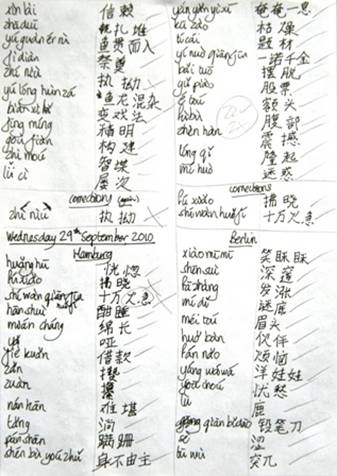
|
Learning Chinese |


|
Kevin Munns |
|
on |
|
Learning Chinese |

|
Given that this page is a bit of a rant, I should give you an idea whatís on it first: |
|
∑ Introduction and basic ideas ∑ A few study tips from me ∑ Location: China, ďChinaĒ, or at home ∑ Some myths ∑ Some places where I studied ∑ Cash ∑ Summary ∑ A business idea ∑ Caveat |
|
Introduction |
|
Letís start at the beginning.† |
|
Is this guy full of rubbish? |
|
So you can get an idea whether or not Iím talking complete trash, I should sum up my recent life in a sentence or two.† I started learning Chinese in an evening class in London in the UK, which I did for three 10 week courses. Then, after going travelling, I spent a semester at the Language and Culture University (BLCU) in Beijing.† For obvious financial reasons, I then decamped to Chengdu in order to learn for a couple more years.† That was 4 years ago, and Iím still here learning Chinese.† Yes, that means Iím either mentally retarded, or really good at Chinese.† As the Oracle said to Neo, ďIt is a pickle, no doubt about itĒ. |
|
A few basic ideas |
|
1.† There are some good and bad things about learning Chinese.† The good things are: you donít need to be particularly clever, I donít think, to do it.† I also donít think you need to be talented with languages either, and I certainly donít think you need to have any experience of learning languages before.† Also, I donít think you need much money, especially if you are lucky enough to have English as a first language, in which case you perhaps donít need any money at all as you can earn while you go, depending on your lifestyle.† So, why does Chinese have the difficult reputation it does? There is one thing you do need, and, unfortunately, itís the one thing that no-body has: time.† I read an article by an American diplomat who said he thought that after studying full time for 4 years you would finally feel like you were getting somewhere.† I think thatís about right.† So get ready for a long-haul. |
|
2.† The Chinese characters are, of course, the thing which it takes your memory time to get a hold of, and thereís only so fast that you can push it.† The mini-section after this is therefore a bit of advice from me about how to tackle them.† |
|
3.† Learning Chinese characters, which is essential for more than just ďhotel lobby ChineseĒ, takes time and a bit of effort, but also itís only really something you can do on your own.† Some people go a bit too far on this though, and try to learn entirely on their own, perhaps while working in China during the day, and maybe with a one-to-one tutor.† I donít think this is a permanent solution though: itís important to learn with other students, at least on and off, because this is how you see where your weaknesses are compared to others.† You may find that your writing is good but your tones are all wrong.† You may find that your vocabulary selection is weird and only patient Chinese people can understand.† So you need to spend some time, probably at a university in China, in a class, with other students of the same level.† |
|
4.† Lastly, despite all this bad news, the good thing is that most Westerners drop out long before the end of 4 years full time study, and therefore most Westernerís Chinese is pretty terrible.† China is also a huge, huge country.† For these reasons you hardly have to step outside a five-star hotel and youíll bump into people who have never spoken to a foreigner in their life.† Be prepared though, they might have saved up a lot of things they wanted to say.† Living and studying the language in China can be hard work, but it certainly isnít boring.† |
|
Some things I wished I had known about each stage |
|
There are some key things to aim for in each stage I think, but some of them are not obvious, and many completely missed out on traditional courses.† Jot these down on a piece of paper and check it every now and then: Beginners: ∑ Obviously learning how to learn is the first, and difficult task, and everyone will have a different way ∑ Basic grammar constructions are really a beginner task as well Intermediate: ∑ Vocabulary.†† This is a big one, and is every students stumbling block ∑ How to split words of similar meaning.† There are simply thousands of them in Chinese.† This is not something that all courses are good at but is key to the intermediate stage.† There are, for example, dozens of words that could be translated into the English word Ďbusinessí.† ∑ Which words are formal, and which ones are informal/oral words.† In my experience most courses are absolutely terrible at this, indeed, most will give students almost no practice at all.† This is a huge gap in teaching Chinese as a second language. Advanced: ∑ Building formal vocab is key to good Chinese.† You might not care about writing formal letters, but reading a newspaper is pretty useful, and then all instructions on busses, in shops, and almost all adverts are written in a very formal style.† Western students are not so good at this part.† ∑ Chinese idioms, of course, separate the real linguists from the Ďhotel lobbyí language students.† ∑ Culture.† Anyone who lives in China could write a whole page on it.† In one phrase, a good Chinese student doesn't know how to say everything in Chinese, he/she knows when to shut up and not say anything at all.† This is the bit you canít learn in a coffee bar in Cambridge, which, as it happens, is the subject of my next little section.† |
|
Location: China, ďChinaĒ, or back at home |
|
Since learning Chinese takes a while, choosing where to study is important.† Hereís a few words from me about each choice.† |
|
Learn in China |
|
This is the thing most serious adult students do.† It comes with a few warnings though.† |
|
Asian Education.† |
|
I read on the BBC this year that PISA tests run by the Organisation for Economic Co-operation and Development rated education in China, particularly high schools in Shanghai, as the best in the world, even rating them better than all Western countries.† Interesting.† A couple of questions though: ∑ Why donít any Westerners send their children to boarding schools in China for their education? ∑ Why do so many Chinese politicians and business people, including ones from Shanghai, pay enormous sums of money to send their children abroad for their education? I asked this of my English students and they came up with the answer straight away: Chinese education is complete rubbish.† Right.† And thatís another reason not to read the BBC website then.† ĎAsianí education then, as Iíve found it, is that children under 18 are given massive pressure, and occasionally beaten, until they can remember all the answers to the University Entrance Examination (gao-kao) taken at age 18.† After 18, i.e. at university, it doesnít matter what they study, the teacher of each subject will tell the students what is in each exam anyway.† |
|
This is the context for the educational environment in which you would learn Chinese in China.† As an aside, itís perhaps not worth waiting for the Ďimprovements in educationí which someone smitten with China-fever will talk optimistically about.† Japan in one of the richest countries in the world, and everyone faces 10 years compulsory English education.† If you have ever gone to Japan and stopped someone to ask for directions in English, you will have no hope that language education in Asia will improve any time soon.† |
|
The important question, therefore, is how all this will pan-out in a Chinese language class for foreigners.† |
|
Most of the time this background results in a lot of teachers, especially the older and more experienced ones, standing up in class and talking for 2 hours non-stop. This is absolutely no exaggeration.† The way that a lot of teachers (and indeed Chinese language students studying English) expect the class to go is that the teacher will explain all of the new words.† At the end the teacher might ask questions, but if you get them wrong you have failed as a student, and you can expect the teacher to occasionally make sure you are aware that you failed.† |
|
Now, a lot of people will say that Chinese is different, and therefore the Chinese education system is bound to be different, and we should respect that and try to adapt to it in order to learn the language.† Rubbish.† Iíve had a few conversations about it with my parents, and several times they have commented about how similar these things are to their experience at school in London in the 1950ís.† The teacher will talk.† You will listen.† You should show you were paying attention by getting all the teacherís questions right.† How dare you talk in class.† |
|
To anyone who has done a CELTA or TEFL course in English teaching this is completely ridiculous.† There is nothing† in this style of education which is useful or applicable to learning a language, however different from English.† |
|
As another aside, you would expect that if a teacher has taught a lot of Americans and Europeans, or if they are young and have got a lot of new ideas, that these habits would gradually fall away in newer teachers.† Not so.† There is a spanner in the works.† Korean students are not happy at all with having fun in class, and, perhaps being Asian, have a real skill of complaining in the right way to the right people, and the teachers soon learn that a fun class with language games and oral practice is the end of your career.† The result is that young teachers, less secure in their jobs, with less connections in the school, revert to type and become more formal, talk more, and experiment less.† Since Koreans make up a large number of the language students in China, donít expect this to change any time soon.† |
|
While Iím on a complete downer, the other things which make studying here difficult are of course differences in food, difficulties with visaís, the difficulty of taking a bus on your own, peopleís refusal to close the window when itís 35 degrees outside, and of course, Christmas, which will clash with end-of-term exams every single year without fail.† Which one of these annoys you the most is almost random I think.† For me itís Christmas.† |
|
In Class |
|
This all sounds like I think studying Chinese in China is a disaster.† Actually, itís not, and in fact, when you look at the other options, it turns out, in my opinion, that learning on the ground here is best.† My point in this section is that you need to be aware of these problems and take matters in to your own hands.† You need to attend classes otherwise you wonít get anywhere, but you need to have a tutor, or even two.† Or even, when I was in Beijing, half-a-dozen language partners.† These can happily fill in the gaps from class.† And if you are clever it doesnít need to cost too much, and language partners should even be free.† You could even argue that a native English speaker shouldnít have language partners as the cost ratio for one to one tutors is about 5 to 1, i.e. you should be paid 150 per hour and she should get about 30.† Max.† Suddenly learning in China seems the Ďgood and cheapí option.† |
|
Other things to think about |
|
This rather negative section isn't as bad as the possibilities afforded by the options of studying at† university back at home, or God forbid, in Hong Kong or Taiwan.† |
|
Learn back in the land of the free |
|
Someone who spent 4 years studying Chinese full time in a university back at home is clearly going to have pretty good Chinese.† Iíve met a few of these, and theyíre really interesting.† |
|
The good things are their background in Chinese literature. Chinese people love testing each other by comparing quotes and small snippets of knowledge of classics, at least educated people do, and particularly one American guy that I got to know had an impeccable knowledge of all this.†† Although for a while most language students think this is too much hassle, this year I decided that it was my biggest weakness in communication and have taken ancient Chinese and literature much more seriously.† This, therefore, is a big plus of learning full time at home.† |
|
For the American guy I met though, this was where it ended.† When we were chatting in a less formal situation we always seemed to ending up discussing the Chinese word for Ďdemocracyí, Ďtransparencyí or Ďaccountabilityí or some other such bombshell, which even though he knew all the Chinese words for, no-one knew what the hell he was talking about, or werenít the least bit interested, one of the two.† The problem, therefore, was that he was just translating what he would say to his American friends into Chinese and hoping to have a conversation.† This, I decided, is what happens when you learn Chinese in a coffee bar in Cambridge.† Itís a great achievement, for sure, but Iím not sure it makes you very employable over here.† Actually the said guy came 4th in a Chinese speaking competition on Chinese State TV and became a mini-celebrity at Sichuan University.† After that though he couldnít find a job that he really wanted and decided to go back to the US.† |
|
As another small aside, the huge range of older literature which so many people value here is gradually losing itís weight among peopleís daily life, especially in the Ďpost-90ísí generation.† You could say this is because of the rise of the internet and the internet language that goes with it, or you could say that it was because most of the educated people in this area were severely persecuted during the Cultural Revolution, and if they survived then a lot of them left mainland China, if they hadnít already.† Lecturers in America or the UK who come from Taiwan or Hong Kong are not therefore likely to mention that some of it is less relevant today.†† Which leads nicely to the other places where people go to study Chinese.† |
|
Learning in ďChinaĒ† (i.e. Hong Kong or Taiwan) |
|
Letís just make one thing clear, I love Hong Kong.† Actually, itís the only place I have been to so far where I thought ĎI could live here foreverí.† However, Iím not sure Iíd choose it as a place to learn Chinese.† |
|
People from Hong Kong are famous for having the worst Mandarin in China.† Not only that, but the school fees are astonishing compared to the mainland.† But these are not the reasons why not to choose Hong Kong or Taiwan to study Chinese.† |
|
In 1953 the Communists over in the mainland simplified the Chinese characters.† About 25% of them were made more simple.† Not only that, it was the more common 25% that they changed as well, which means that as a beginner-level language student a very large majority of them are different.† |
|
Iím not going to discuss, here, whether Full-Form / Traditional Chinese is better or worse that Simplified Chinese.† All Iím going to say is that trying to have an intelligent conversation with someone from Hong Kong or Taiwan about the merits of each is like trying to discuss abortion with the Pope.† Should a raped woman be forced to bring up a child who looks like her attacker?† Should a woman who is likely to die in childbirth be forced to sacrifice herself for the baby she will never meet?††† It doesnít matter how blisteringly good your argument is the Pope will tell you that you are the devil incarnate and will be tortured in the fires of Hell for eternity.† |
|
This is about the level of debate you can expect to have about Chinese characters with someone from HK / Taiwan.† Learning Chinese characters is the hardest thing youíll ever do, I promise.† Donít give yourself a thrombosis.† Even though the food is better in Hong Kong, and everything else for that matter, donít go there to study Chinese.† |
|
Do go there afterwards though.† Did I say, by the way, that I absolutely love Hong Kong?† I do. |
|
In the end |
|
These are the things, in my opinion, which need thinking about before deciding on the best way of going about learning Chinese.† You may have noticed, by the way, that it looks like a choice based on which one will be the least disastrous.† Iíll come back to that.† |
|
Due to this unsatisfactoriness, if thatís a word, there are a lot of other ideas about how to study Chinese.† These are some of the other myths that you hear a lot, and a few words from me about each one.† Be prepared for another opinionated rant.† |
|
In the unlikely event that someone read this whole page down to here, then they might have noticed the following few things: ∑ Textbooks have no, or hardly any tried and tested Western education methods, and nor do Chinese teachers have much idea what they are ∑ Electronic dictionaries donít even contain information on word-type, and my app canít even accept Chinese character input despite having a perfectly good enough touch screen ∑ Educationally enlightened people from HK/Taiwan will force you to learn old-style characters even after you show signs of a stress-induced cardiac condition ∑ Intermediate stages of learning - to differentiate between words of a similar meaning, including which are formal and which informal - are almost non-existent and something you more or less have to do on your own ∑ If you decide to do a full four year course to sort all this out, say goodbye to four Christmases in a row |
|
Clearly, the point I am trying to make on this page is that the process by which foreigners learn Chinese is still in its early stages.† In other words, itís a complete mess.† |
|
On this there is another important point.† I started learning in 2007, when I donít remember there being any smart-phones, and Steve Jobs hadnít yet blessed the world with his tablets, so for this reason it wasnít too difficult to decide to make my own flashcards from bits of paper.† Making flashcards is an enormous investment in time, but pays back later when you come to really embed it in your memory with repeated practice and review.† However, these days, there are several flashcard programs which make all this easier, and Iím sure there are, or will be, apps for this for phones and tablets.† This is absolutely the future of Chinese learning for Westerners, a new student needs to know this from the beginning.† |
|
Contents |
|
A few study tips from me |
|
Itís all about the Chinese characters.† Sure, thereíll be times when you want to brush up on your oral in preparation, say, for an interview, and thereíll be times when you find your listening is not so good as others and you need to focus on it for a few weeks.† But the thing which determines your level, determines how far you can Ďbrush upí, determines how far your skills can be in front of your knowledge, is of course the number of characters you know. |
|
If there was one main tip I had about learning Chinese, and the most important idea on this page, is that when you start learning Chinese itís important to review and practice, even just a little bit, absolutely every day.† This is the one thing that none of us can escape from.† Of course, it might make things a lot easier to use one of these Ďflashcard softwareí programs. |
|
You should, of course, have a number of characters that you can recognise but canít write.† Some students, probably in desperation, decide that reading is enough and half give-up writing.† This doesnít work.† There are so many characters, and so many of them are really so, so similar, that you have to learn to write a proportion of them just so that you can recognise some others.† I think, roughly, that the number of characters that you can recognise but canít write should never be more than about 25% to 50% of your total Ďvocabularyí.† At the very, very end, of course, the only ones we could start to forget are the names of fruit and flowers weíve never seen, some peopleís surnames, and, of course, ancient Chinese.† Full Form / Traditional Chinese characters (still used in Hong Kong and Taiwan)† also belong in this group, just donít tell anyone from Hong Kong or Taiwan.† Donít start me off on that one - see the section below about studying Chinese there.† |
|
Be careful of a couple of things though.† ∑ Most of these programs have been written by Westerners who learned Chinese for a few months, got hooked, and then decided to make some money out of it.† The beginner levels are good and very useful for constant review.† After becoming a good intermediate, however, they are completely useless.† At least the ones I tried are.† And I mean really bad.† Be aware, and donít become totally reliant on one piece of software for your Chinese.† ∑ Make sure the program you use allows you to practice writing the character, either on the screen or on paper.† Donít worry about how beautiful it is, just get it out.† You will know in your heart whether you drew the right one or not when it shows you the answer.† ∑ And one small thing, the order of the strokes and which direction they go in seem very boring and a waste of time at the beginning, but actually when you start to write faster it becomes essential, and Chinese people are very, very sensitive to it.† |
|
Chinese dictionaries, unfortunately, are also pretty terrible. |
|
These days, again, people are using apps, and so we should of course.† The huge vocabulary in Chinese canít possibly be represented by a hard-copy dictionary.† Be careful of one thing though, my American friend had an early app, from Apple, about 2 years ago, but astonishingly each entry didnít have whether the word was a noun, verb, adjective, etc.† This was also the same for my electronic dictionary I imported from the US to the UK, at huge expense, back in 2007.† Because you could write Chinese on the touch screen it was indispensible, but at the same time unbelievably inadequate.† Check this before you pay any money for an app.† |
|
Some people prefer paper dictionaries.† Also, the makers of paper dictionaries will also, in the end, be the producers of electronic dictionaries anyway I guess.† So just to have a look at a couple; the worst dictionary I ever bought was, sadly, the Oxford Chinese Dictionary by Oxford University Press.† The attraction, of course, was that the English actually looks like someone checked it, which is a welcome relief.† After that it goes downhill though, essentially because itís clearly written by a load of old farts who have never heard of the internet, and because some of the translations are really very odd indeed.† Ask a Chinese person what happens to your body of you eat too much KFC, look up their Chinese answer in the dictionary, and ask them what they think of the translation.† You wonít use the dictionary again after that.† Such a prestigious publishing house, and yet itís gone so badly wrong on this one.† The one caveat is that it must obviously be limited by the fact that you can only print so many words on a piece of paper, Iíll give them that.† Added to the difficulty of looking up characters which you donít know how to read out loud, and even an old git like me can see that there is no future for paper Chinese dictionaries for foreign students.† |
|
Being an old git though, I do have a favourite dictionary that I stumbled across by chance in a bookshop here in Sichuan.† It was a Modern Chinese ĎUsageí Dictionary.† Itís advantage and disadvantage are both that itís only in Chinese.† But it has lots and lots of essential example sentences.† The word type is clear, and, crucially for the intermediate student, it has an actual discussion of the differences between words of similar meaning.† Now, put that into a huge database containing all the rude language people shout out of their car windows in Chongqing, and you have the app to kill all other apps.†† I havenít looked, but Iím pretty sure there isnít one yet.† Donít count on it being produced by Oxford University Press though.† |
|
There is one small piece of good news.† Last semester my sister and her boyfriend came to Chengdu for a visit.† He was very macho about going to some out-of-the-way places because he had bought an I-phone 4S which had a translating function.† My Dad thought he was going to make himself look an idiot.† But actually, there was an occasion where he was in the hotel restaurant, no-one spoke English, but he was able to use the dictionary, with a very patient Chinese waiter, to communicate what he wanted, including his wheat allergy and dairy intolerance.† So in many ways it actually worked just like he wanted it to.† |
|
So, electronic dictionaries might have big drawbacks now (English good, Chinese analysis terrible) but they wonít forever.† Iíve hardly used one, and even Iím a believer.† |
|
Characters |
|
Key point |
|
Study aids |
|
Dictionaries |
|
These are the main tips I can think of about the process of studying.† There are a few things, however, that are a bit more subtle.† Mainly, what the object of the different stages are of learning Chinese.† |
|
Some Myths |

|
Sichuan University was OK, more or less, but in the end I finished all their classes.† One to one was the only option left, then, and so now Iím at the ĎSouthwest University for Nationalitiesí, which despite being Chinglish is the official name for the university of Minorities.† Now in November 2012 Iíve only been there a few weeks, but so far so good.† Iíve also whipped up a page on this place tooÖ† |
|
Some places where I studied |
|
If youíve heard other people talk about their learning Chinese experience, it might help you put this page in perspective if I write about where Iíve been before, so you can compare.† As it turns out,† Iíve been to quite a few.† |
|
Cash |
|
It is, after all, what makes the world go round.† |
|
A simplified summary |
|
Update:† Half-way through re-writing this page (December 2012) I managed to scrape enough money to buy an i-phone 4S, not least because of the anecdotes I just mentioned.† One of the first things I downloaded, of course, was the Chinese dictionary.† Unfortunately its appalling.†† OK, itís the free version, but the paid versions are made by the same company.† Not only is there no mention of word-type (noun, adjective, etc), but you canít input by writing a character on the (plenty capable enough) touch screen.† That means you can only look up Chinese characters which you know already.† Nice one Apple.† |

|
ďThereís no need for all this, Iím going to wait until they learn to write it all with an alphabet and then do it. |
|
Dream on.† |
|
This sounds like a ridiculous idea to most people anyway, but an American lady did actually give this as her reason for not studying the language despite living here for several years.† She looked quite disappointed when I gave her my assessment of how much progress they had made towards an alphabet.† None.† And there wonít be any.† |
|
Itís simple.† Letís just check my dictionary... |
|
According to my first ever dictionary (which I just slagged off big-time) there are 171 characters which you would write Ďshií in roman letters.† Yes, there are 4 tones.† Even if you split them by four,† you still get more than 40 words which are pronounced exactly the same.† |

|
The characters is it then.† Good luck, and may the force be with you.† |
|
Class Textbooks |
|
Having just had a major rant about dictionaries, I havenít even started on the textbooks Iíve used in class.† The difference is that these are all written by Chinese people, obviously, and so far I havenít seen a book with a contribution from a Western education professional.† |
|
That a Westerner could make a contribution to learning Chinese sounds like bigoted Imperialism, but if you do a CELTA / TEFL course before leaving home you will sit in class picking massive holes in the learning process.† This seems to be pretty standard, and the books that I saw in the cupboard at the Minorities University were all ones I had seen before at Sichuan University. |
|
Essentially all the books are based on Ďlanguage from a textí, which means you need to learn the vocabulary yourself at home, either before or after class.† Most of the class time consists of the teacher explaining words (one thing we were told never to do on our CELTA course).† Some classes will have listening practice, but the point about me writing this little section is that youíll need to have a plan for how to practice oral Chinese.† This will be to practice the vocab, but also to try out the grammar structures you come across in class as well.† There are certainly no games or kinaesthetic-style learning exercises, and thereís no point in asking the teacher to try some, they wonít know what the hell you are talking about, even if you do ask them in perfect Chinese.† |
|
If all this sounds very unsatisfactory, by the way, I should point out that Koreans are very happy with the need to sit and listen to the teacher for 2 hours, and I can think of at least two occasions when some Korean students officially complained to the University when the teacher introduced oral group-based activities and some freer practice activities.† Thatís the end of that then.† |
|
A Business Idea |
|
If, however, someone took the author of a well-written evidence-based language book from the US, UK, etc and set them to work on methods which could help learn Chinese, if they sorted out a decent electronic dictionary and integrated a proper self-test system builder for vocabulary learning which included distinctions between words, if they managed to get someone to allow them to set up a new school in Mainland China for Westerners which would involve not arranging exams on Christmas Day, and if they ditched the teachers which talked for 2 hours and used ordinary Chinese people who had done a 4 week introduction course and could follow a well-written activity-rich bookÖ†† If someone did all this, believe me, they would make a fortune.† It would be, however, a very big task.† |
|
Several times I put on this page that it takes four years to fight through all this.† If someone got all this sorted out though, I seriously think that the Chinese I know now could be done in 2 years.† It would be a tough 2 years, but at least a lot more people would make it to the end.† |
|
Anyway, itís just an idea.† |


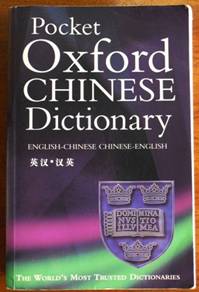
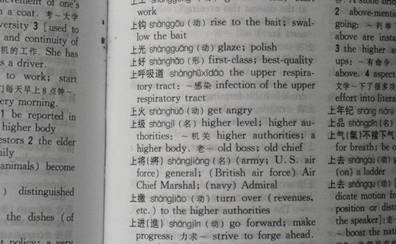
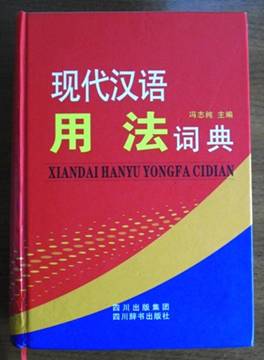
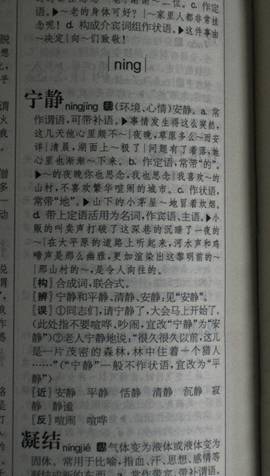
|
Not only that, but at the same time, in my Ancient Chinese class, another American friend of mine was using the text-reading function of the same I-phone 4S.† There was even this one time when the student he sat next to forgot his book, but the American student said that he didnít need it, and just took a photograph of the text we were studying and proceeded to use the software to annotate it with translations into modern Chinese and English.† |

|
Caveat |
|
Anyone who has learned some Chinese will be able to tell you about a special phenomenon, which Iím starting to think only applies to learners of Chinese and not to other languages.† |
|
Itís that if two Chinese learners who have never met before are in the same room, then either they, or others, will start a conversation based on trying to work out who speaks better Chinese.† The curious thing is to then watch as the two people start marking the floor with sticks, banging their feet on floor, beating their chests with their fists, and generally descend into primeval power displays to mark out territory and defend long-standing mating arrangements.† OK, not quite, but anyone who has had this conversation will know what I mean.† Itís like discussing with a man who can drive better, or perhaps suggesting that his penis is not quite as big as it should be.† In the end, I have decided, itís almost completely pointless trying to get a few Chinese students together and discussing how to make the whole process better.† |
|
This wouldnít be important if I hadnít just written a huge page all about learning Chinese.†† |
|
A more than reasonably modest person will, therefore, notice the irony of writing a large piece of advice, the heart of which is not to listen to a lot of advice which people often write about.† |
|
ďBad news is thereís no way if you can really know whether Iím here to help you or notĒ, as the Oracle said to Neo.† |
|
Learning Chinese |
|
Essentially there are a lot of people with a lot of very strange ideas about how to learn Chinese.† |